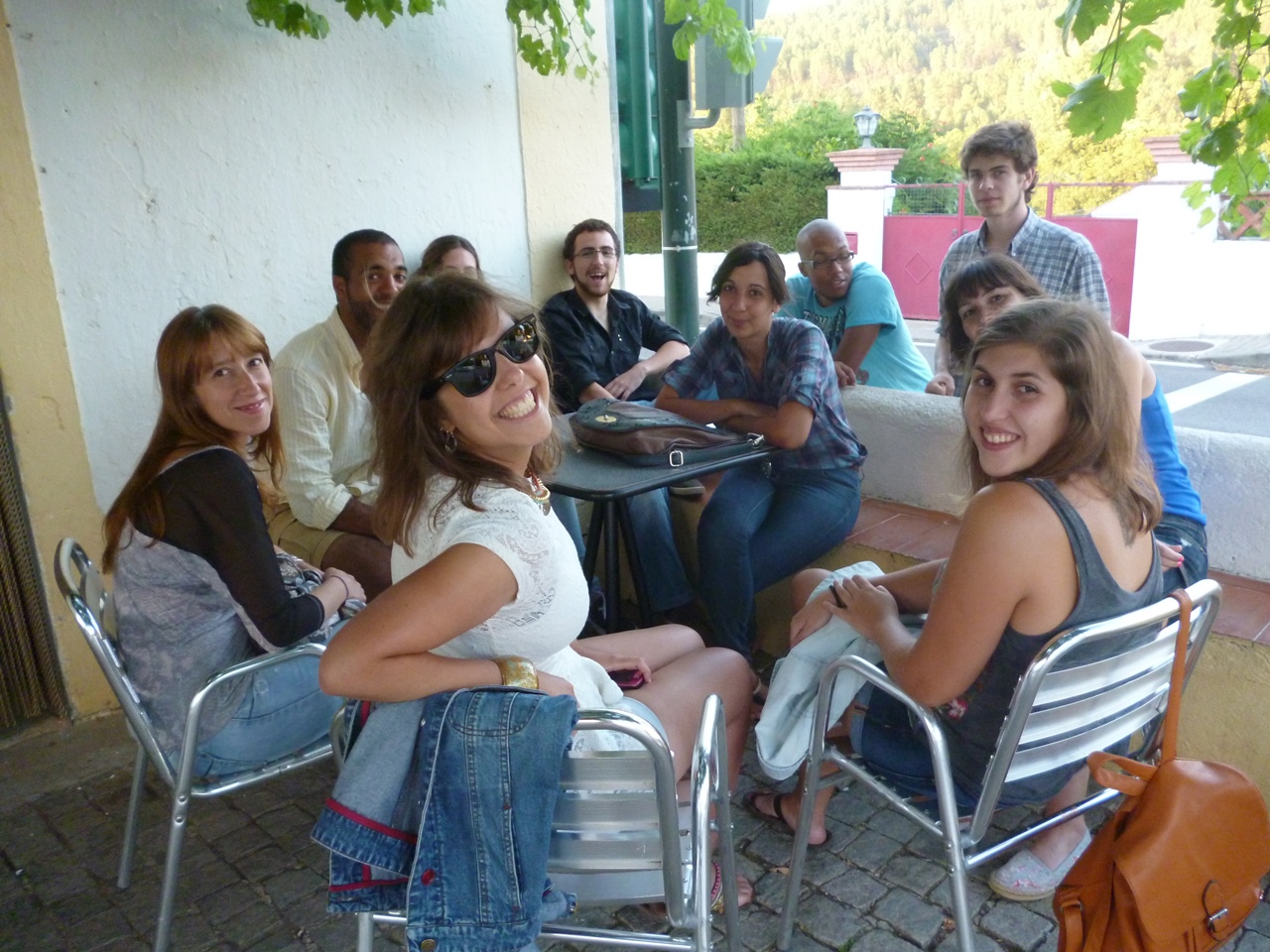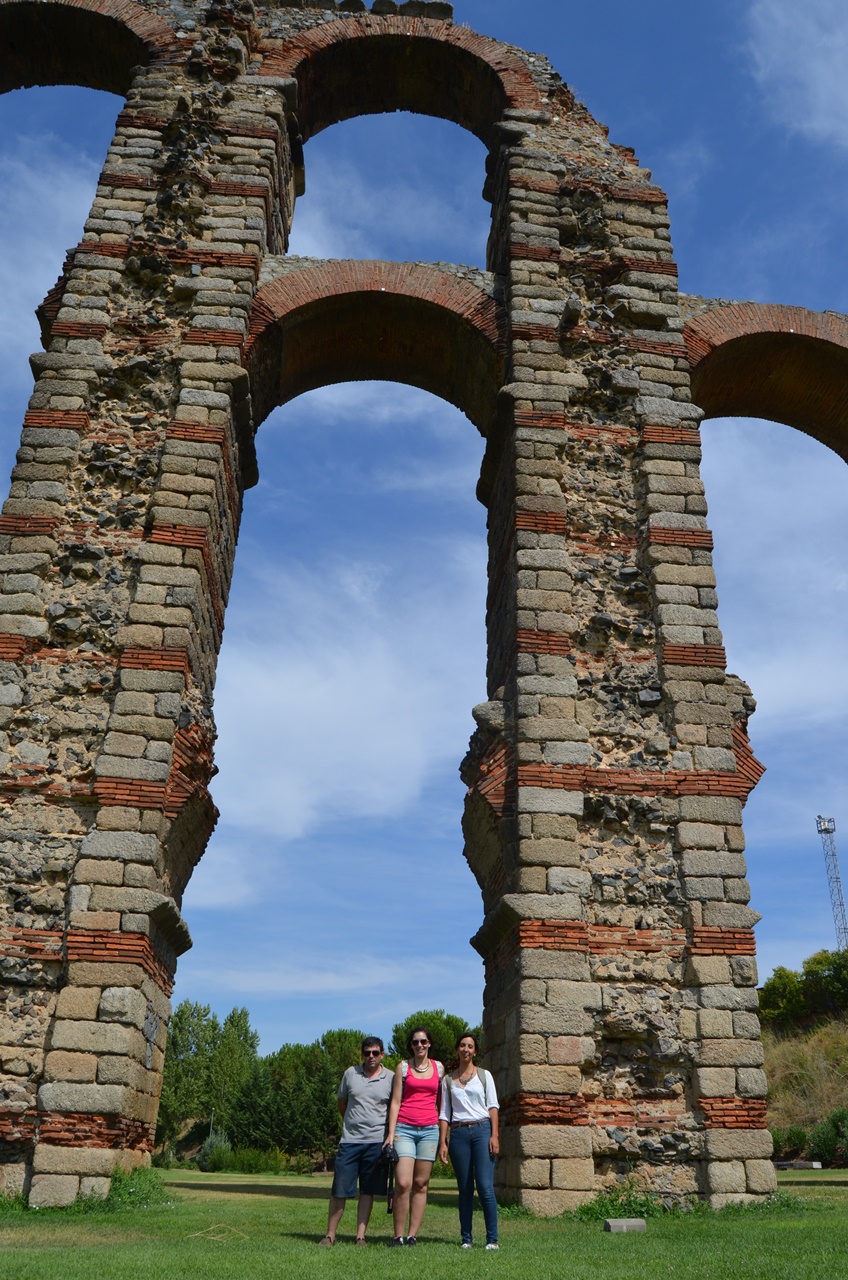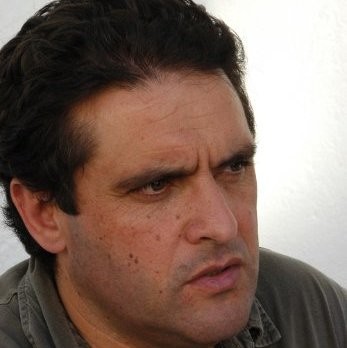Overview
The Roman town of Ammaia is one of those rare cases where fortunately for archaeologists and lovers of Roman history, no trace of cities from other historical periods have been built over the town. This field school is part of a larger research project developing in Ammaia. Although the first scientific archaeological work started in 1994, the Roman remains of Ammaia were classified as a Portuguese National Heritage Monument in 1949.
With the first archaeological interventions initiated in Ammaia, archaeologists have identified an important monumental complex, which is the main entrance of the town designated as the South Gate (Porta Sul), leading toward the provincial capital, Emerita Augusta, which at the Roman time was the administrative center of Lusitania. Another important monument of Ammaia is the Forum, the main center of political, economic, social and religious life of the town and the surrounding region. We have identified many of the Forum’s monumental buildings: a cryptoporticus evidenced by some structures that formed the posterior and lateral boundaries facing northeast; and the podium of the temple, possibly dedicated to the imperial cult, and part of the frontal square including the Forum entrance, shops and warehouses and part of the remains of the Basilica.
In recent years the archaeological team has worked mostly in the Forum monumental complex and most recently in 2019, at the Roman Amphitheatre, the most recent discovery in Ammaia. In 2020 we will continue the archaeological component of our investigation with excavations at the Forum Complex and in the Roman Amphitheater.
We will also be testing some non-invasive geophysical techniques to check if we can identify some architectural structures by matching the new results with the urban plan of Ammaia and the Radio-Past project results. We will also continue to work in the Laboratory on preventive conservation and restoration of archaeological artifacts, such as ceramics, metals (coins and different objects), glass, etc. Besides this, we will continue to carry out several projects of conservation and restoration of the exterior structures belonging to the Roman town.
Instructors
The directors welcome emails and inquiries about the research elements of this project. More general information (tuition, health insurance, and payment schedule) can be found under the ‘Students’ tab above. Any further questions may be addressed to IFR staff. Additional details about research, course schedule, travel, accommodation, and safety can be found on the syllabus. Contacting the directors or the IFR office is encouraged and appreciated. It may help you determine if this field school is a good fit for you.
Testimonials
This is a new IFR field school. No student testimonials are available at this time.
Tuition Includes:
- Cost of Instruction
- Cost of Academic Credit Units
- Room & Board
- All local transportation
- Health & Evacuation Insurance
Student Fees
This program requires an online application — there is no fee to submit an application. Once admitted, a payment of the nonrefundable deposit fee is required to secure a place in the program(s). The Tuition balance (total program cost minus the deposit fee) must be paid prior to the Tuition deadline as listed above under “Course Details.” A $200 late fee will be added to all accounts not paid in full by the Tuition deadline.
Early Decision Enrollment (Nov 1, 2019 through Jan 10, 2020): A reduced, nonrefundable $300 deposit fee is required to secure a seat in the program. This deposit is part of the total Tuition and NOT in addition to it.
Regular Enrollment (Jan 11, 2020 through payment deadline): A nonrefundable $500 deposit fee is required to secure a seat in the program. This deposit is part of the total Tuition and NOT in addition to it.
Late Enrollment (payment deadline forward): A nonrefundable $600 deposit fee is required to secure a seat in the program. In addition, a $200 late fee will be added to all accounts not paid in full by the Tuition payment deadline.
Withdrawal & Cancellation Policy: If you paid the deposit fee but did not cancel your participation by the Tuition payment deadline, you are legally responsible for the full Tuition regardless of attendance at any IFR program. Please carefully read our Withdrawal & Cancellation Policy for further information.
Credit Card Processing Fee: A 2.5% processing fee is automatically incurred for all credit/debit card/online payments.
Academic Credit Opt Out: Students who wish to participate in an IFR field school without earning academic credit units may do so and receive the following discounts: $300 off a full program (4 or more weeks in length) or $200 off a short program (2-3 weeks in length).
Trip Cancellation Insurance: The IFR does not provide trip cancellation insurance. Read this Wall Street Journal article about travel insurance — it may help in making a decision whether such insurance is for you. If you do wish to purchase such insurance, Insure My Trip or Travel Guard are two possible resources you may wish to explore.
Accommodations
Ammaia is located in a small village near Marvão, called São Salvador de Aramenha. Field School accommodation will be in the Quinta dos Olhos de Água farm, a five-minute walk to the Ammaia ruins. Students will be accommodated in a recently constructed building (with 10 apartments) in Olhos de Água farm. In the same area there’s a kitchen and a living room. Shared rooms hold a maximum of 4 people. There will be separate rooms for male and female students. There will be a bed for each team member, and you will need to bring your own sleeping bag and towels (see What to Pack for a checklist of items you need to bring in syllabus). The apartments will be cleaned once a week. It is the student’s responsibility to maintain and clean the house for the rest of the week. Students will go to Ammaia field school on foot, about a five minutes’ walk. Breakfast is the responsibility of each student, but other meals will be provided by the project staff. Lunch will be provided by a restaurant outside the Lab near the ruins and dinner will be at a restaurant in São Salvador, a 10-minute walk from the lodging apartments. Food and other amenities can be purchased at local stores. Different supermarkets are about a 10-15-minute drive from the Ammaia archaeological camp. All meals are provided from Monday to Sunday (students are responsible for their own meals at weekends if they go to explore the region or do other activities).


Travel Info
We suggest you hold purchasing your airline ticket until six (6) weeks prior to departure date. Natural disasters, political changes, weather conditions and a range of other factors may require the cancelation of a field school. The IFR typically takes a close look at local conditions 6-7 weeks prior to program beginning and make Go/No Go decisions by then. Such time frame still allows the purchase deeply discounted airline tickets while protecting students from potential loss if airline ticket costs if we decide to cancel a program.
The archaeological site of Ammaia is located very near the border with Spain, in the Serra de S. Mamede Natural Park; a wonderful, quiet and peaceful environment near the medieval towns of Marvão and Castelo de Vide.
Students are responsible for making their own travel arrangements. Please be sure to arrive in Marvão, Portugal on or before June 21 (Sunday). The field school activities will conclude on July 24 (Friday), and students should plan onward travel for July 25 (Saturday).
Students landing at the Humberto Delgado Airport in Lisbon (LIS), will be met by the project staff and transferred to Marvão. Students arriving by any other means of transportation to Lisbon (train, bus, etc.), should make their way independently to the meeting point at the airport.
If you missed your connection or your flight is delayed, please call, text or email the project director immediately. A local emergency cell phone number will be provided to all enrolled students.
VISA REQUIREMENTS
Portugal is a member of the European Schengen Visa Agreement. Citizens of the US and Canada do not require visas to enter Portugal. As such, US citizens may enter Portugal for up to 90 days for tourist or business purposes without a visa. Your passport should be valid for at least 6 months after your designated departure date. Citizens of other countries should check the Portuguese Embassy website page in their home country for specific visa requirements.
No vaccinations are required but anyone working in archaeology in Portugal needs to have an up-to-date tetanus shot.
Student Safety
The IFR primary concern is with education. Traveling and conducting field research involve risk. Students interested in participating in IFR programs must weigh whether the potential risk is worth the value of education provided. While risk is inherent in everything we do, we do not take risk lightly. The IFR engages in intensive review of each field school location prior to approval. Once a program is accepted, the IFR reviews each program annually to make sure it complies with all our standards and policies, including student safety.
Students attending IFR international programs are covered by a comprehensive Health Insurance policy that includes physical illness or injury, mental or chronic conditions. No deductible and 100% of costs are covered up to $250,000. In addition, we provide Political and Natural Disaster Evacuation policy, which allow us to remove students from field school location if local conditions change. Our field school directors are scholars that know field school locations and cultures well and are plugged in into local communities and state institution structures.
Students attending IFR domestic programs (within the US) must have their own health insurance and provide proof upon enrollment. IFR field school directors are familiar with local authorities and if in need of evacuation, local emergency services and/or law enforcement will be notified and activated.
The IFR has strong, explicit and robust policy towards discrimination and harassment in the field. If students feel they cannot discuss personal safety issues with field school staff, the IFR operates an emergency hotline where students may contact IFR personnel directly.
Call us at 877-839-4374 or email us at info@ifrglobal.org if you have questions about the safety of any particular program.

























